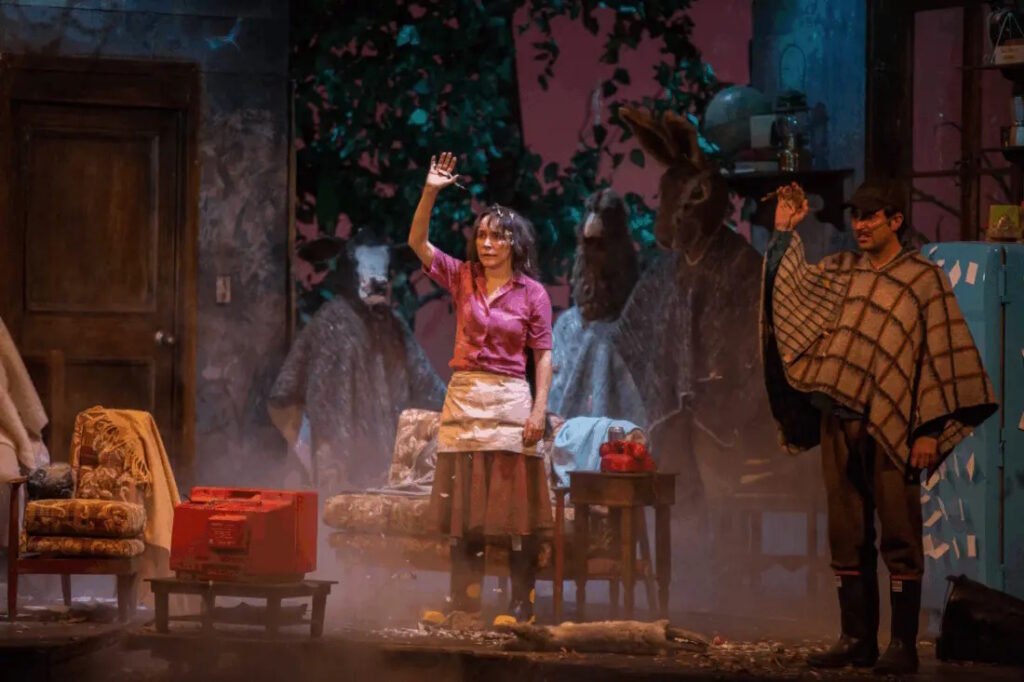With the support of the Embassy of Colombia and the Foreign Ministry of Colombia, the Concha Velasco Red Room of the Teatros del Canal in Madrid presents on 14 and 15 November the work Labio de liebre.
A man who committed heinous crimes and served house arrest in a cold, inhospitable place is visited by the ghosts of the people he murdered to ask him to remember their names and how he ended their lives. These crimes, in the play Labio de liebre, occurred in a specific country, Colombia, although their resonance may extend to the rest of Latin America, where violent conflicts have existed and exist.
Ten years after its premiere, this landmark piece of Colombian theatre written and directed by Fabio Rubiano has returned to the stage. This work on forgiveness and revenge is one of the central assemblies of the repertoire of the company Teatro Petra, founded in 1985 by Rubiano and Marcela Valencia and with a legacy of more than 35 shows, awards and tours in many festivals. It was his leap to large format and, in the words of the director, a moment of validation as a company.
After a decade, Labio de liebre, which takes its name from one of the characters named for his cleft lip, maintains its validity because the violence has remained, but it has given a small turn. A small change that manifests itself fundamentally in a greater awareness towards the victims and, although in the initial approach of the montage the victims are not idealized figures -“they have hatreds, sometimes they are unjust and are full of passions”, according to Rubiano, “they don’t make jokes about their pain, but they do make jokes about the absurdity of certain situations of violence. The work became more reflective, more attentive”. The irony is still present, but now it points to the grotesque of violence. Even so, what the spectator of the Autumn Festival will find is not a definitive truth, but a space where contradiction, discomfort and the desire to understand coexist. In this fragile balance, the work has found a space where memory does not close, where theatre neither pardons nor absolves, but names, discomforts and transforms.
